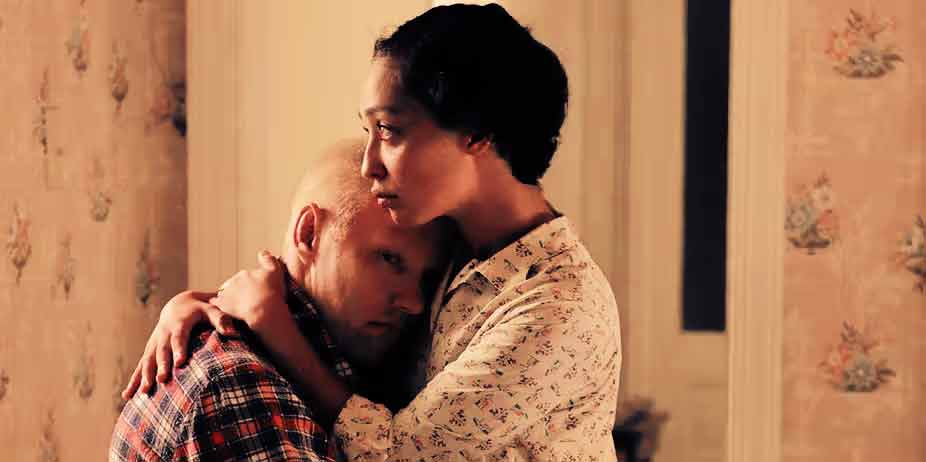 Loving (2016)
Loving (2016)
Films that use silences are
rare; they act in courage and expect the audience to
read in-between the lines. Loving is one such story, a
historical profile of the interracial marriage that
changed American history.
Mildred speaks two words:
“I’m pregnant.” She waits. Richard (Joel Edgerton)’s
face splits into a broad smile. “That’s wonderful,” he
says.
The rest of the world might
not think so. It’s 1958 in Virginia, and while both
their families accept their love for one another, the
state does not. Determined to “make it legal,” Richard
drives her to Washington DC for a marriage license. The
beaming newlyweds return home and hang it up on the
wall… and days later, the local sheriff (Marton Csokas)
drags them out of the same bed and throws them in jail.
Richard spends one night. Mildred spends several; the
sheriff will not let Richard bail her out. “Blacks and
whites,” he says, “they don’t belong together.”
Richard feels otherwise. He’s
not about to divorce her, so he stands his ground in
court. Their lawyer suggests they take a deal that will
force them to leave the state for twenty-five years. But
Washington does not feel like home, so Mildred writes a
letter to Robert Kennedy that changes not only their
lives, but racial history, forever.
I did not know this film even
existed until I discovered it in a list of
recommendations and then assumed it was a small-budget
effort; it’s not, and Colin Firth produced it., It’s an
incredible film. It’s all about unspoken affections, the
bond between two people, and the world that contrives to
keep them apart (and also the people that help them
along the way). It’s never judgmental, but never
condoning of the racial segregation that demanded they
stay apart; this is less about “bad people,” and more
about “why these two people should be together.”
Some of the case's facts
surprised me, but this is more about their relationship
than a courtroom drama; most of the excitement happens
off-screen, but there is an low build of menace
throughout, as you hope they are not “caught” and
returned to jail (as one lawyer says, “there’s no
guarantee if they went back in, we could get them out”).
But, I’ll admit: it felt longer than it was,
because there is so little overt emotion on
display. Richard and Mildred talk to one another little
and the audience never hears what’s going on in
their head—which is a daring approach, and works well
here, but left me a little cold.
The cast is solid and turn in
wonderful performances, and the recreation of the 1960’s
is lovely, with authentic vehicles, costumes, and even
scenes shot on location. It’s a moving portrait of two
people remarkable only for their desire to be together,
when the state of Virginia told them it was a
“reprehensible act.”
Sexual Content:
A woman falls pregnant outside of marriage; a
couple enters a bedroom together and closes the door. A
policeman threatens a woman by saying he will lock a
prisoner in with her overnight.
Language:
Three n-words, several uses of s**t, a few profanities.
